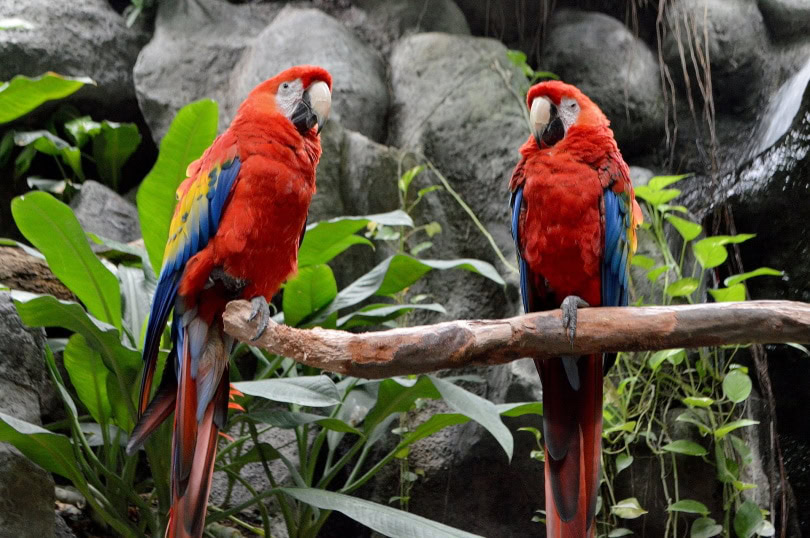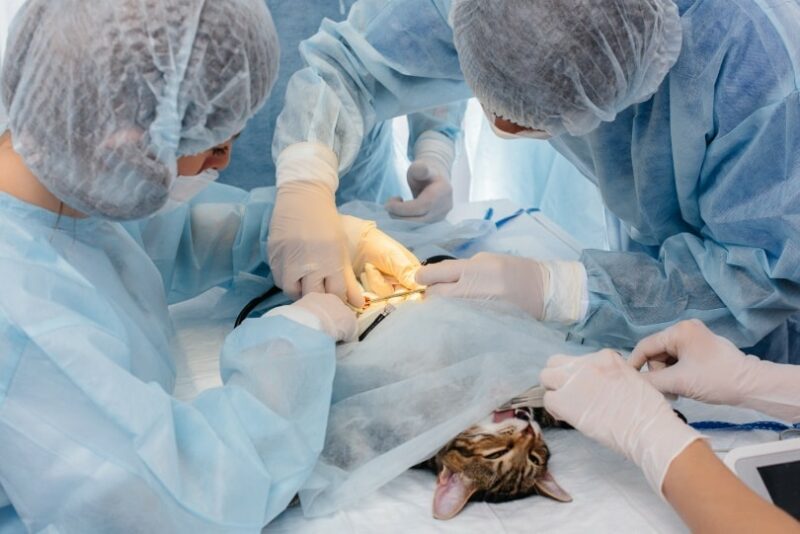VET APPROVED

The information is current and up-to-date in accordance with the latest veterinarian research.
Learn more »There are many species of parrots out there, and they all mature at different rates. Medium-sized parrots are typically mature at around 2 years of age. At this time, they will begin laying eggs. Smaller species usually mature faster, while bigger species mature slower. Therefore, you’ll have to take your parrot’s specific species into account when determining their sexual maturity.
While parrots become capable of laying eggs after they reach sexual maturity, that doesn’t necessarily mean that they will. Parrots’ egg-laying is regulated by hormones. If their hormones instruct them to lay eggs, the parrot will do so, even if they won’t be fertilized.
Several factors function as signals for a parrot’s hormones that breeding season has begun. An increase in sunlight hours, exposure to other parrots, and the availability of nesting materials may all play a role. If you don’t want your parrot to lay eggs, you can prevent these factors from occurring. However, parrots sometimes simply lay eggs without any obvious cause. There is no way to prevent egg-laying completely without medical therapy or surgery.
The size of the clutch will depend on the species of parrot. Some parrots may lay three to six eggs, while others may only lay one. Different species have different norms.

Do All Female Parrots Lay Eggs?
All female parrots that have reached sexual maturity are capable of laying eggs. However, parrots work differently from most other species in that they only lay eggs when exposed to certain conditions. Their egg-laying is controlled by hormones.
There are several ways to induce egg-laying in female parrots. Exposing them to other parrots and increased sunlight is one way to do this. Often, breeders provide nesting materials and adjust sunlight exposure. However, it is generally not suggested to induce egg-laying unless the bird is specifically being bred.
Egg-laying has risks, just like any other birth. Birds have died from impacted eggs, which occurs when an egg gets stuck inside the oviduct. Furthermore, egg-laying also requires a lot of minerals, calories, and nutrients for production. This factor makes breeding birds predisposed to malnutrition, osteoporosis, and other illnesses.
Therefore, we recommend that pet parrots be discouraged from breeding.
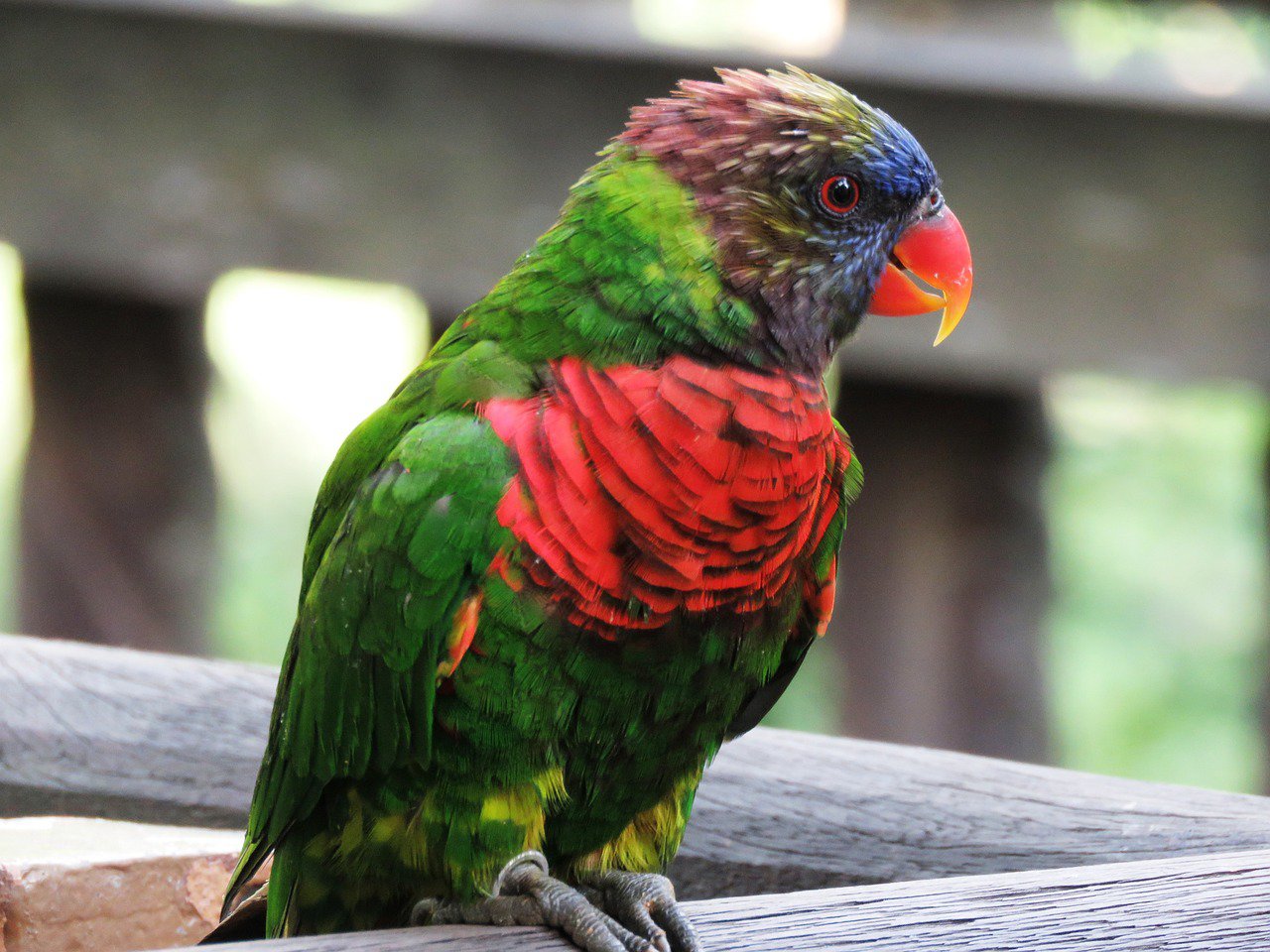

How to Discourage a Parrot From Laying Eggs
There are several ways to discourage a parrot from laying eggs. Here are some of our top suggestions.
1. Keep Your Bird Away From Potential Mates
In the wild, a female bird will only lay eggs if she has a mate. In captivity, though, this doesn’t have to be another male bird of their species. Any bonded bird will do. Keeping your bird separated from other potential mates in the household will usually prevent egg-laying. Keep in mind, though, that a toy or even a preferred human can be perceived as a potential mate by a female parrot.
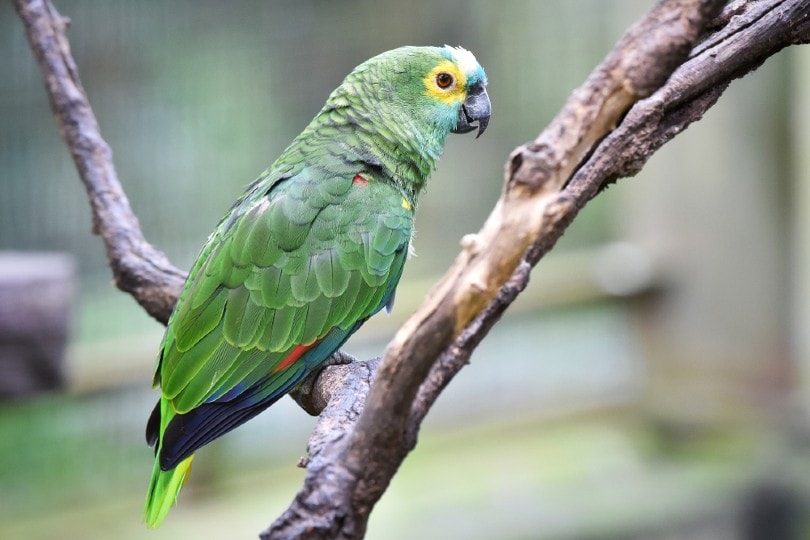
2. Eliminate Potential Nesting Sites
Birds only lay eggs in the wild when they have a nest, which is usually in a dark, enclosed area. Therefore, you should not provide such spaces for your bird to nest in. If your parrot is regularly out of her cage, closely supervise her, as she may go and find a nesting location. Birds may nest in the dryer, under a couch, or in drawers.
3. Put Your Bird to Bed Early
Your bird should not be kept up late at night, as the length of the day can trigger hormonal breeding responses. Instead, you should mimic the winter day/night cycle, which will prevent your bird from believing that it is breeding season.

4. Regularly Change the Cage Interior
Birds only like to nest where they are completely comfortable. While you don’t want to make your bird live in discomfort, you can regularly change the inside of the cage. This will distract them as they get used to their “new” surroundings, keep them entertained, and help them think about other things.
5. Provide Optimal Nutrition
Some birds will simply lay eggs no matter what they do. In this case, we recommend providing optimal nutrition and full-spectrum light to prevent nutritional issues. You’ll need to serve a pelleted diet to ensure your bird receives all the nutrition they need, as seed-based diets are not nutritionally dense.
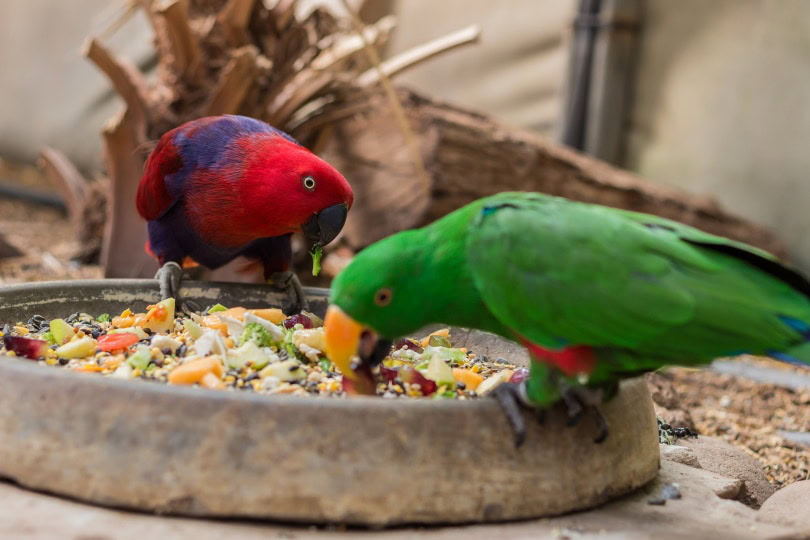
6. Do Not Remove the Eggs
Commonly, bird parents will remove eggs from the bird’s nest as soon as they are laid. However, birds do not have a biological limit to the number of eggs they produce. Instead, they produce eggs until the “correct” number is in their nest. Therefore, if you remove the eggs, the bird will continue to lay them. One of the best ways to prevent further egg-laying is to leave the eggs or egg dummies in the nest until the bird loses interest.
7. Consider Hormone Injections
If necessary, you may want to ask an avian veterinarian about hormone injections. These are relatively safe and can stop egg-laying when other suggestions haven’t worked.
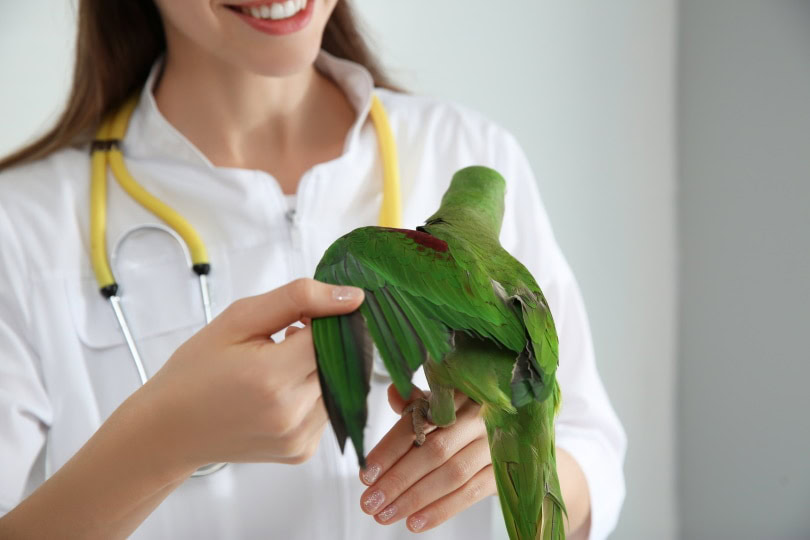
How Long Is a Parrot Pregnant Before Laying Eggs?
Egg-laying does not work the way the general populace often believes it does. Birds do not develop a set number of eggs ahead of time and then lay them all at once. Instead, birds only produce one egg at a time. This egg is developed over a 24–48-hour period in most cases, though this can vary a bit. Therefore, parrots aren’t actually “pregnant” for long at all.
Parrots (and all birds) will continue to produce eggs until they have the “correct” number in their nest. This number depends on the species and the bird. Sometimes, there is quite a range within a species. Essentially, if an egg is removed, the female will lay another one to replace it, so if the eggs are continuously removed, the females will continue to produce more eggs until the breeding season is over. Sometimes, this can lead to lots of eggs being produced.
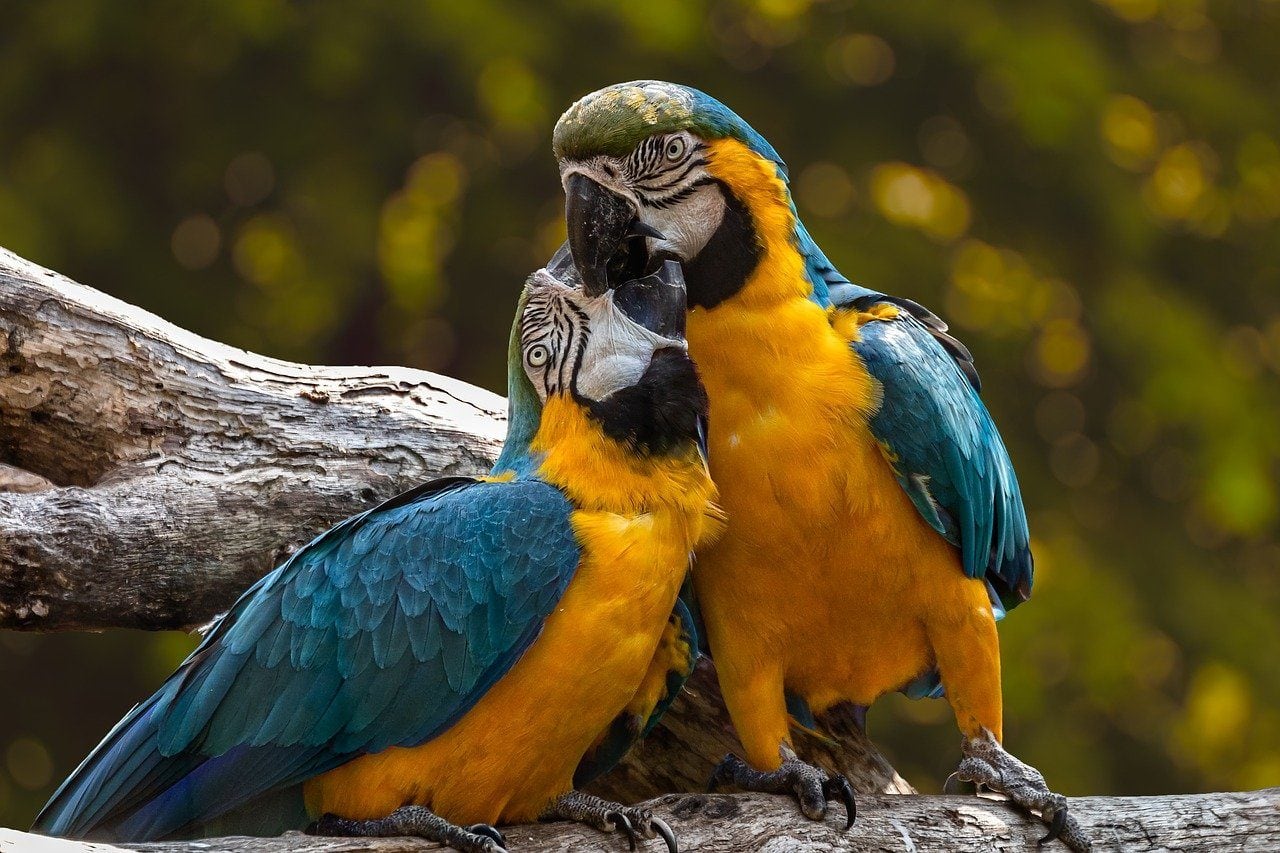
Even if the eggs are unfertilized, it is best to leave them in the nest. Otherwise, the female will simply continue trying to reach the “correct” number of eggs in the nest, which may lead to chronic egg-laying.
Once the correct number of eggs is produced, the female will normally stop laying eggs. However, if the bird’s hormones continue to signal that it is breeding season, she may start another clutch after the eggs are removed.
The incubation period for fertilized eggs usually lasts 18–30 days. Both females and males usually incubate the eggs. However, in captivity, this may differ.

Conclusion
All female parrots that are sexually mature can produce eggs. However, unless she believes it is breeding season, she usually won’t. Therefore, there is a lot you can do to prevent egg laying in pet parrots, which is typically recommended to avoid the possible health issues that often come with it.
In the wild, female parrots usually do not lay eggs unless it is the correct time of year, which the parrot determines by the lengthening of days. Therefore, in captivity, a longer day and extra sunlight can make the bird believe that it is breeding season. Furthermore, these birds usually don’t lay eggs unless a mate exists, though this mate doesn’t necessarily have to be the correct sex or species.
Finally, most birds will make a nest before egg laying. Having access to nesting materials and a safe location will often make the bird lay eggs.
Featured Image Credit: LINO IGNACIO, Pixabay
Contents
- Do All Female Parrots Lay Eggs?
- How to Discourage a Parrot From Laying Eggs
- 1. Keep Your Bird Away From Potential Mates
- 2. Eliminate Potential Nesting Sites
- 3. Put Your Bird to Bed Early
- 4. Regularly Change the Cage Interior
- 5. Provide Optimal Nutrition
- 6. Do Not Remove the Eggs
- 7. Consider Hormone Injections
- How Long Is a Parrot Pregnant Before Laying Eggs?
- Conclusion
